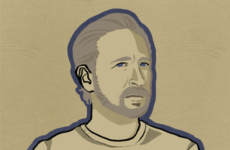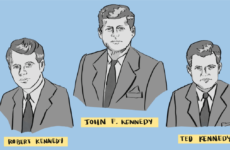
The Drug Policy Alliance is one of many organizations that protests the government’s legislation of drugs. Photo courtesy of Drug Policy Alliance
After a long and treacherous fight, on August 28, New York officially decriminalized marijuana. Thousands of people who are currently incarcerated under nonviolent marijuana-related offenses will automatically have their charges expunged. With 11 states now allowing recreational marijuana use and many more state legislatures currently considering bills on the topic, it is possible that marijuna use will someday be completely legalized on a national scale.
But it’s not enough. To fundamentally protect the values, citizens, and economy of our country, we must decriminalize and legalize the sale and use of all drugs.
Drug prohibition has created an environment in which violence, crime, and organized gangs thrive. Annually, the war on drugs costs the United States $40 billion. But that’s just what we see on paper. The social cost is increased violence, potentially productive citizens thrown into prison, perpetual poverty, and crime.
The harm is especially noticeable in developing countries. Because of the harsh crackdown on on drugs by authorities in the U.S, much of the production of these drugs is in poorer, less politically stable countries in Central and South America. Criminal organizations often all but replace the government, becoming a superpower in those countries both physically and financially. Estimates from the Economist say that organized crime costs El Salvador 16% of its GDP annually and has set back the country’s development by 30 years.
The prohibition of drugs hurts the U.S. as well. When it’s harder to bring drugs into a country, drugs become more compact so that more can be transported without detection. They become more refined, more pure, and, consequently, more dangerous. And when demand stays the same but supply goes down, price inevitably goes up. Addicted consumers will pay almost anything to buy the drugs they crave, and this financial burden adds to the destruction inflicted upon addicts. Stereotype aside, drug dealers earn less than minimum wage, in debt to their gangs and risking their lives every day. Only the top bosses swim in profit.
But is it even within the federal government’s power under the Constitution to prohibit the sale and consumption of drugs? The war on drugs, spearheaded by President Richard Nixon, began in 1970 when the federal government passed the Controlled Substance Act, making the sale, transport, and use of many drugs illegal in the United States. When our country was established and the Constitution was written, the federal government was set up as a limited government, meaning it only had the powers enumerated to it under the Constitution. The federal government cannot just grant itself more power, but must justify where in the Constitution it gets its power from.
At least the alcohol prohibitionists of the 1920s respected the Constitution enough to go through the correct process. When they wanted to ban alcohol, they used a constitutional amendment to do it. But the federal government didn’t do the same with drugs. Congress actually created a law that is unconstitutional, violating our rights as citizens to organize free trade with other law-abiding citizens. This was a clear overreach.
By legalizing use and then introducing drug sale to a free and competitive market, foreign drug bosses will have to retreat. Fresh competition will drive down drug sales, and people who are addicted will be more inclined, and potentially encouraged, to seek help once they no longer have to fear legal punishment for substance use.
Not only would the legalization of drugs lower organized crime, but it would also make drugs safer. Regulation would prevent drugs from being contaminated with dangerous chemicals and would protect people from ingesting lethal amounts of the substance. Hundreds of thousands of incarcerees would be released from prison for non-violent drug crimes.
As an added bonus, the government could put taxes on these transactions, with that money then going into programs to help those addicted. Cracking down on drugs was meant to help Americans, but it has hurt us as a country. To stop the dangerous business of drugs, we have to let the free market run its course.




